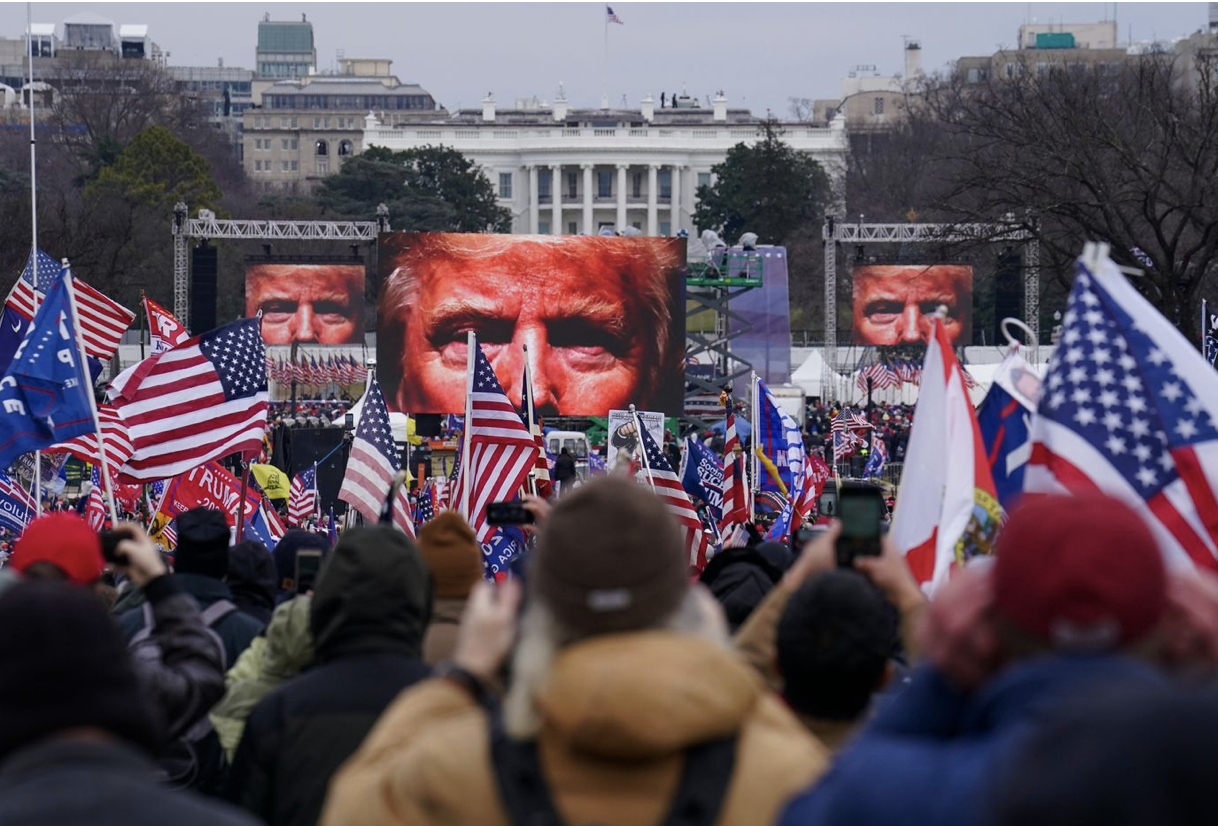By: The Editorial Board – wsj.com – February 7, 2024
The Colorado court voted 4-3 in December to disqualify Mr. Trump under Section 3 of the post-Civil War 14th Amendment, also known as the Insurrection Clause. The four Justices held that Mr. Trump engaged in an “insurrection or rebellion” on Jan. 6, 2021, based largely on evidence from the House Jan. 6 special committee. Maine’s secretary of state has made a similar ruling, though several other states have ruled in Mr. Trump’s favor on the question.
The easiest way to dispatch Colorado’s ruling is with a textualist analysis that the President isn’t covered by Section 3. This is the argument that David Rivkin and Lee Casey make nearby, and former Attorney General Michael Mukasey has made the same case in these pages.
The argument is that the President isn’t an “Officer of the United States” as defined by the Constitution. Earlier versions of Section 3 included the President and Vice President, but these offices were scrapped from the final text. That’s in part because the 14th Amendment’s authors were mainly worried that Confederate rebels would be elected to Congress, and that President Andrew Johnson would appoint them to executive-branch offices.
The Constitution’s Appointments, Commission and Impeachment Clauses separately refer to the President and “officers of the United States.” If the President were an officer, these clauses would be superfluous or illogical. Article II gives the President the power to appoint “Officers of the United States” with the advice and consent of the Senate. The President doesn’t nominate himself.
As Chief Justice John Roberts emphasized in Free Enterprise Fund v. Public Company Accounting Oversight Board (2010), “The people do not vote for the ‘Officers of the United States.’”
Mr. Trump and several friend-of-the-court briefs also make a compelling argument that Section 3 isn’t self-executing—meaning that Colorado’s Supreme Court cannot by itself disqualify Mr. Trump or anyone else it deems an insurrectionist.
Section 3 notably doesn’t authorize state courts or officials to enforce its provisions or specify a process for determining whether individuals have “engaged in insurrection” and how to disqualify them from serving in government. Instead, the 14th Amendment empowers Congress to “enforce” Section 3 by enacting “appropriate legislation.” Congress did so in 1870 by requiring federal prosecutors to bring writs of quo warranto to disqualify office holders.
Congress later repealed most of this law. What remains is a federal criminal statute punishing insurrection, which says anyone “who engages or assists in an insurrection . . . shall be incapable of holding any office under the United States.” But Mr. Trump hasn’t been charged with insurrection, and neither has anyone else who has been charged with other crimes in connection to Jan. 6.
A risk for the future is that other partisans will define insurrection down to disqualify their political opponents. As former Attorneys General Ed Meese, Bill Barr and Mr. Mukasey argue in a friend-of-the-court brief, “without a clear statutory definition, the types of presidential actions that might be deemed an ‘insurrection’ are virtually limitless.”
Messrs. Rivkin and Casey make another crucial point, which concerns the uniformity among states in qualifications for the Presidency. If Colorado is upheld, and a handful of other states follow, the 2024 election will be a patchwork electoral quilt. Mr. Trump will be on some state ballots and not others. This would be tremendously polarizing politically. But as a matter of law, the Supreme Court has ruled that while states can determine election procedures, they can’t change the qualifications for federal office in the Constitution.
***
The best course for the country would be for the Justices to settle this case on the narrow legal issues, and not to enter the political fight over whether Jan. 6 was an insurrection. The Justices don’t need to go there if they find that Section 3 doesn’t cover the President. A 9-0 decision would send a unified message to the country that Colorado is wrong on the law.
To see this article in its entirety and to subscribe to others like it, please choose to read more.
 Listen Online
Listen Online Watch Online
Watch Online Find a Station in Your Area
Find a Station in Your Area









 Listen Now
Listen Now Watch Online
Watch Online
